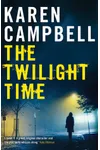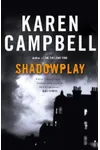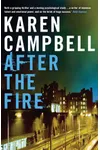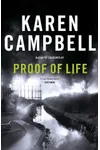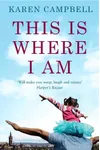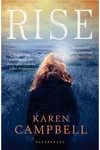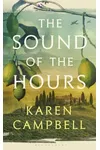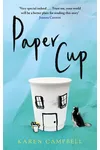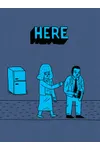Picture a Scottish storyteller who turned Glasgow’s gritty streets into gripping tales—meet Karen Campbell! A former police officer turned novelist, Campbell weaves mystery and literary fiction with a sharp eye for human complexity. Her debut, The Twilight Time (2008), introduced readers to a vibrant urban landscape and launched her as a standout voice in contemporary Scottish literature.
From her roots in Paisley to her award-winning novels, Campbell’s journey is one of transformation. Her knack for blending raw authenticity with emotional depth has earned her a loyal following and critical acclaim, proving that life behind the badge can inspire stories that resonate far beyond the precinct.
The Making of Karen Campbell
Born in 1967 in Paisley, Scotland, Karen Campbell grew up in Glasgow, where books became her early escape. As a child, she devoured Twinkle Comic and Enid Blyton’s tales, sparking a lifelong love for storytelling. After studying English, Drama, and French at Glasgow University, she took an unexpected turn, joining Strathclyde Police as a uniformed constable. For over five years, she patrolled Glasgow’s bustling ‘A’ Division, gaining firsthand insight into the city’s underbelly—a perspective that would later fuel her fiction.
After leaving the force to raise her daughters, Campbell worked as a media officer for Glasgow City Council, crafting press releases that honed her narrative skills. Her passion for writing led her to Glasgow University’s prestigious Creative Writing Masters, where she graduated with distinction in 2003. This marked the start of her literary career, culminating in a two-book deal with Hodder & Stoughton and her debut novel’s release.
Karen Campbell’s Unforgettable Stories
Campbell’s debut, The Twilight Time (2008), introduces Sergeant Anna Cameron, a newly promoted officer navigating Glasgow’s notorious Drag—a hub of crime and despair. Described as “gritty as hell, shot through with black humour,” the novel blends police procedural with deep dives into personal struggles, like motherhood and missed opportunities. Its atmospheric prose and vivid characters set the tone for her Anna Cameron quartet, including After the Fire (2009), Shadowplay (2010), and Proof of Life (2011).
Beyond crime fiction, Campbell’s versatility shines in later works. This Is Where I Am (2013) explores the life of a Somali refugee in Glasgow, earning a spot as a BBC Radio 4 Book at Bedtime. Paper Cup (2022) follows Kelly, a homeless woman on a redemptive journey, showcasing Campbell’s knack for tackling social issues with compassion. Her latest, This Bright Life (2025), delves into the ripple effects of a young boy’s mistake, cementing her reputation for emotionally charged narratives.
Campbell’s style is marked by vivid descriptions and authentic dialogue, rooted in her police experience. Her Glasgow settings pulse with life, from seedy alleyways to affluent suburbs, while her focus on identity, family, and social margins adds depth. Whether writing mysteries or literary fiction, she crafts stories that linger, blending suspense with heartfelt introspection.
Why Karen Campbell Matters
Karen Campbell’s impact lies in her ability to humanize the uniform and amplify marginalized voices. Her police novels peel back the badge to reveal the flawed, relatable people beneath, challenging stereotypes in crime fiction. Works like Paper Cup and This Is Where I Am tackle homelessness and immigration, offering empathy and insight into Scotland’s social fabric. Her 2009 Best New Scottish Writer Award and Shadowplay’s CWA Gold Dagger shortlisting highlight her influence in tartan noir and beyond.
By teaching creative writing and mentoring diverse groups, including refugees and prisoners, Campbell extends her storytelling ethos, fostering new voices. Her evolution from cop to celebrated author inspires readers to see the world through a lens of curiosity and compassion, making her a vital figure in contemporary Scottish literature.
- Born: 1967, Paisley, Scotland
- Key Works: The Twilight Time, Paper Cup, This Bright Life
- Awards: Best New Scottish Writer (2009), CWA Gold Dagger shortlist (2010)
Snag The Twilight Time or Paper Cup and dive into Karen Campbell’s gripping, heartfelt world of mystery and humanity!
